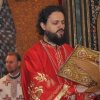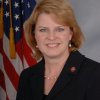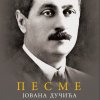At this year’s May session of the Holy Assembly of Bishops of the Serbian Orthodox Church held in Belgrade, it was clearly and unambiguously expressed that the will of the Bishops assembled is to support the convening of the upcoming Holy and Great Council, as well as confirming the participation of the Serbian Orthodox Churches, and by so doing affirm the Council, which will, God-Willing, be held in the Orthodox Academy of Crete on Pentecost from 17 to 26 June 2016.
“The message” of our Holy Assembly of Bishops to other Churches, which was read during the final session of our Assembly, and in no way included any conditions to our requests to the Holy and Great Council. We simply offered our views on some of the current issues raised, and by no means implied anything else. Specifically, our message stated that it is about “principled position on all the key issues on which will be discussed and decided upon by the Great Council.” It is important to point out, however, that the decision for the participation of our church was not made merely “in principle,” nor was it left for any further consideration or requirements to be made by anyone, including our Synod with the Patriarch at its head. We need not mention here that for decades now, the entire Orthodox Church in conciliarity and through various preconciliar commissions, has been preparing for this Council, and that the Primates recently confirmed and signed the decision for convening of the Holy and Great Council in the year 2016 (in Constantinople, or now in Crete). Additionally, members of the delegations from the local Churches signed not only the decision for the convening of the Council, but also the documents that will be considered by the Council, as well as the rules of procedure for the Council, and by so doing agreed to the agenda that was drafted for the Council. For these reasons, the efforts made in recent days to imply that the Serbian Church after all of its Hierarchical Assembly decisions would now ignore the will of its Assembly and the position of its delegation in the preparation for the Great Council which they themselves confirmed with their signature, is simply dishonest.
Therefore, we will be going to this Holy and Great Council, with the desire that it establish and guarantee the unity between the local Church within the one Church “in the ecumene,” and by so doing, pour forth the hope for our salvation from death. The Serbian Church does not sympathize with those of little faith which one might see in some who would in advance decide that the Great and Holy Council will not be the way they thought it should be. The bishops of our Church are conceding to the blessing of the Great and Holy Council, which is, as history testifies, in and of itself a “miracle” and an “event,” by which the Eucharist heals all wounds, those seen and those unseen.
We also wish to point out that in comparison with some of the negative attitudes, for the Serbian Church, above all else is the universal mission of Orthodoxy. Some individuals, and it occurs repeatedly, are expressing a wavering weak willingness acting as if to renounce courage and the active collaboration with the Grace of God. Our Church is aware that the eventual failure to convene the Great and Holy Council can easily contribute to the fact that in the future no Council whatsoever is possible to convene, and the relationships between Churches essentially be violated.
Also, the Holy and Great Council in Crete cannot be revised to be a “Preconciliar Inter-Orthodox Consultation,” because never and nowhere in history is there a record of a great assembly of Orthodox hierarchs, which was not at the same time a gathering of a Great and Holy (not necessarily and ecumenical) Council.
It is therefore our hope that the Great and Holy Council, by its work, and especially with the Divine Liturgy which will be celebrated on the island of Crete, will finally provide the possibility to express the reality of Pentecost and the icon of the world to come, which overcomes deathly fragmentation, thanks to unity in Christ and His Body, in spite of some differing views.
There is no possibility whatsoever that the representatives of the Serbian Orthodox Church will not participate in the Holy and Great Council, for it would then violate the will of the Holy Assembly of Bishops of our Church and betray the expectation of Universal Orthodoxy. We do not want to be remembered in history as someone who undermined the reality and institution of conciliarity which governs the relationship of all local Orthodox Churches.
With the help of the Most Holy Trinity, as with the patient and mutual trust of all, through dialogue, in clear conscience, and with proper reasoning, we hope to overcome the temptations in the domain of inter-Orthodox relations and responsibly participate in the Holy and Great Council which will, God-Willing, be held at the Orthodox Academy of Crete on Pentecost from 17 to 26 June 2016. I consider participation in this Council to be the only correct response before God, before the Universal Church, and before the Assembly of our local Church, and before history itself. In this “world,” ruled by divisive forces, the Church of Christ through its Council and Conciliar events, calls upon all to make a joint effort for a dynamic preservation of our unity and common witness of love in Christ. Notwithstanding some unresolved or painful issues, the upcoming Holy and Great Council of the Orthodox Church offers hope in that Christ-like unity and Communion of the Holy Spirit.





